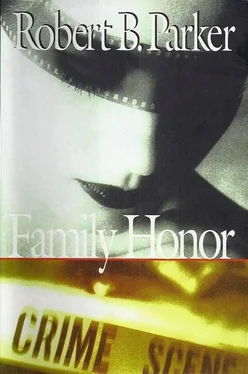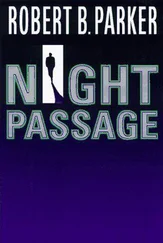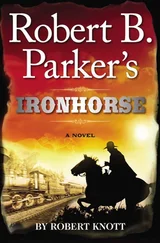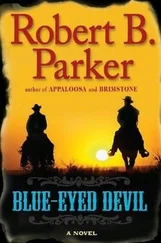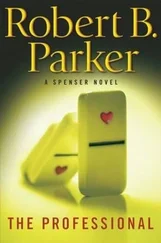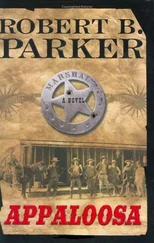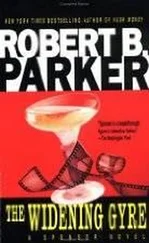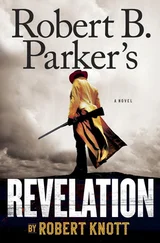“How sweet of you to notice,” Spike said.
“One rule,” Richie said, and he started to grin sooner than he wanted to. “There’ll be no kissing.”
Spike held his look for a minute and then he, too, began to smile.
“Damn,” Spike said.
Richie looked at me. Then at Spike. Than back at me. He raised his glass. We raised ours.
“Boom!” he said.
There was an exhibit of Low Country realists at the Museum of Fine Arts, and, on the assumption that Kragan’s button men didn’t normally hang out there, I took Millicent to see it.
“Why do I want to look at windmills and cows and people dressed funny?” Millicent said.
“I don’t know,” I said.
“But I mean, why would you? Why would anyone?”
“I like to look at them,” I said.
“Why? Look at this picture of this woman, why is that better than a photograph?”
It was a painting by Vermeer.
“Sometimes I like to look at photographs, too,” I said.
“You know what I mean.”
“Yes,” I said, “I do. For a minute there I was doing my grown-up shtick. Avoiding the question by sounding wise.”
Millicent smiled.
“You didn’t sound so wise to me,” she said.
“But I was successfully avoiding the question.”
“‘Cause you don’t know the answer?”
I laughed.
“You know your grown-ups, don’t you.”
Millicent sensed an advantage and bored in. “So why do you like this stuff,” she said. “Because you’re supposed to?”
“No, I’m past doing things because I’m supposed to. I like it. I like the way the painting seems so luminescent. I like the tranquility, I like the way the thing lays out, everything so balanced — space and containment. I like the expression on the woman’s face, the details of the room.”
“You could get that in a photograph.”
“Well, not of this woman,” I said. “It was done in the seventeenth century; they didn’t have photographs.”
“So this would be the only kinds of pictures there were.”
“That’s right,” I said. “The only way they had to fix anything in time, so to speak.”
“I don’t even know what that means.”
“Well, one of the reasons to look at stuff is to learn what things mean.”
“I don’t have to like stuff I don’t like.”
“No,” I said, “you don’t. But it’s probably better to base your reaction on knowledge than on ignorance.”
“What difference does it make? Whether I like it or not?”
“The more things you like, the more opportunities to be happy.”
By now we were sitting on a little bench, and so intent on our conversation that we had stopped looking at the paintings.
“Okay,” Millicent said, “that’s what I asked you before. Why should I like that picture?”
“There’s no should here. I am pleased by how well Vermeer did what he did. But if you’re not, once you’ve looked at it thoughtfully, then you’re not.”
“Well, you’re a painter, so maybe it means more to you.”
“Probably does. But I’m also pleased when I see old films of Ray Robinson, or listen to Charlie Parker, or read Emily Dickinson.”
“I don’t know who any of those people are.”
“Yet,” I said, “but now you know who Vermeer is.”
Millicent shrugged. We sat for another moment, looking at the painting.
“You love Richie?” Millicent said.
“Jesus,” I said, “what is this, your morning for impossible questions?”
“Well, either you do or you don’t,” Millicent said. “What’s so hard about that?”
“I do,” I said, “I guess.”
“You act like you do,” Millicent said. “You and him ever have sex?”
“Since the divorce?”
“Yeah?”
“No.”
“How come?” Millicent said.
“It sends the wrong message, I think.”
“But you’d like to?”
I could feel myself blushing.
“I don’t know why, but this is embarrassing me,” I said.
Millicent smiled happily.
“So you’re not so perfect.”
“Ain’t that the truth,” I said.
“You having sex with that cop?”
“Brian?” I said.
“Yeah, Brian whatsisname.”
I felt myself blushing more. It was annoying. Why didn’t I want to talk about this?
“I guess that’s between me and Brian,” I said.
“How come you won’t tell me?”
“I don’t know. I don’t want to.”
Millicent was radiant with triumph.
“You’re always asking me stuff,” she said.
I took in some air.
“I have never slept with anyone I didn’t care for,” I said. “Like most adults I have sex with people I do care for.”
“So you care for Brian the cop?”
“Yes, I do.”
“So...?”
I smiled.
“You won’t allow me my modesty, will you.”
“You have had sex with him.”
“I guess you’ve got me,” I said.
Millicent was still intense.
“Say so,” she said.
“Yes, I have,” I said.
Millicent looked relieved. The tension went out of her shoulders. I felt like there had been a test. I wondered if I’d passed. Did she need to know I’d tell her everything? Was she trying to take me down a peg? I felt as if I needed another take on this conversation, as if I had botched most of my lines on the first take. But it was over, and the quality of satisfied closure in Millicent let me know that going over the same ground wouldn’t do her any good. I’d noticed in the last few years that getting it said just right didn’t do much for anybody but the sayer. What she had gotten was my genuine reaction. Revision wouldn’t help. Help with what? I wished some sort of supershrink would leap out of a phone booth and explain to me just what the hell was going on. But none did. They never do. The bastards.
I drove out to see Betty Patton through a much-too-early snowfall. The snow was accumulating on soft surfaces and melting as it hit the roadway. The streets were therefore wet and shiny as I wound through the west of Boston boondocks, and the lawns gleamed whitely. It wouldn’t last long; this kind of snowfall never did, and its transience was probably part of why it was so pretty.
I had already checked with Brock Patton’s office at the bank. He was there, though, of course, in a meeting where he was deciding the course of Western civilization, and could not be interrupted. I didn’t mind. I just wanted to be sure I could talk to Betty Patton without him. John Otis opened the front door for me as formally as if I had never had a tuna sandwich with him on Parker Hill. He turned me over to Billie who was just as formal, and she led me down the hallway to a conservatory at the back of the house. Apparently the library, where I’d been before, was Brock’s domain. Betty Patton rose from her little writing desk when I came in and walked toward me stiffly to shake hands. Billie left us.
“Please sit down, Miss Randall,” Betty said.
I did. The floor of the conservatory was stone and I could feel the heat radiating gently up from it. Outside the glass walls, the light snow fell straight down, onto the long meadow that sloped down to the river. The room was furnished with sort of fancy garden furniture as if to emphasize the connection between the room and the out-of-doors. There were a lot of plants around. Since the only thing I know about plants is a dozen yellow roses, I didn’t know what kind they were, but they seemed to be flourishing.
Betty Patton returned to her writing desk and sat and half turned in her chair to face me. She sat very straight, her hands folded in her lap. Her hair was perfect. Her makeup was flawless. She wore a Polo warm-up suit, in which, I suspected, no one had ever warmed up in the history of fashion.
Читать дальше
